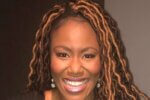Christians must support candidates who stand for righteousness.
In 1954 Congress passed a law that expanded the Internal Revenue Code (IRC), which specifies the tax statutes for the United States. The law contained an amendment that prohibits nonprofit organizations from attempting to influence elections to public office—or risk losing their tax-exempt status.
Prior to that time, churches and other nonprofits had the freedom to be involved politically. But because then-U.S. Sen. Lyndon B. Johnson of Texas had been opposed by a nonprofit group in a political election in his state, he sponsored the amendment, which effectively muzzled the church.
Thankfully some Christians are speaking up. Groups such as the American Center for Law and Justice and the Liberty Counsel are headed by leaders who refuse to let our right to freedom of religion be taken away.
The First Amendment of the U.S. Constitution states that “Congress shall make no law respecting an establishment of religion, or prohibiting the free exercise thereof.” The purpose of this amendment was to prevent the development of a state religion.
But it was also intended to keep the government from interfering in the free exercise of religion by U.S. citizens. This aspect of the amendment is often selectively ignored. And when someone speaks up about it, he or she is frequently lambasted by the press, as Katherine Harris was in Florida in August.
It’s no secret that Harris is a strong believer. She is bold in taking up the issues Christians believe are important. But when she told a Baptist newspaper recently that unless we put godly people in office we will be legislating immorality, the secular press crucified her in front-page stories quoting people who blasted her for even suggesting that Christian values should influence public policy.
The silence from the church in this church-state debate is deafening. I believe it is because the church’s nonprofit status has made it “non-prophet” as well.
At some point churches may have to decide which they prefer: speaking up about what is right or enjoying the tax benefits that section 501(c)(3) of the IRC provides. In the meantime, those in the pews must take the lead.
We laypeople have the freedom to speak up and to be involved politically. Yet for most of my life, Christians have sat on the sidelines when it comes to politics. Often the candidates weren’t the kind of people we’d want to support, and we didn’t think our votes counted anyway.
But today more and more godly men and women are seeking election to public office. Ken Canfield, who founded the National Center for Fathering and who has been heavily involved in Promise Keepers, ran for the Republican nomination for governor in Kansas. Bishop Keith Butler, the pastor of Michigan’s largest church, ran for the Republican nomination for U.S. Senate.
I was involved in their campaigns, raising money and talking to pastors in those states. And I saw firsthand what I’ve observed from a distance for years: most Christians are passive when it comes to politics. Had Bible-believing Christians gone to the polls in force, perhaps both candidates would have won.
But we don’t vote as a bloc as do other groups who feel their interests are at stake in an election. And I’m sure Christians give less percentage-wise than other groups to political campaigns.
This picture must change. Christians must get involved. We must support candidates who stand for righteousness.
And churches must know what they are able to do legally. It’s more than most pastors assume. To help, I’ve set up a Web site with information and links to other useful sites.
I’m also developing a newsletter to communicate with others who feel as I do, and a blog for you to give your opinion. I’m calling it www.strang.com/moveup because I believe it’s time for people to “move up,” speak up and show up at the polls.
Ultimately we must form our own political action committees and put up and elect our own candidates. But first we must connect with one another and begin to organize. Why not go to the Web site today and get involved? The stakes are high, and it’s not too late to turn the political and cultural tide in our country.
Stephen Strang is the founder and publisher of Charisma. To comment about this column on our blog, sign up for a newsletter or search Strang’s 13,000-page archive, go to www.strang.com/moveup.






Leave a Comment
You must be logged in to post a comment.